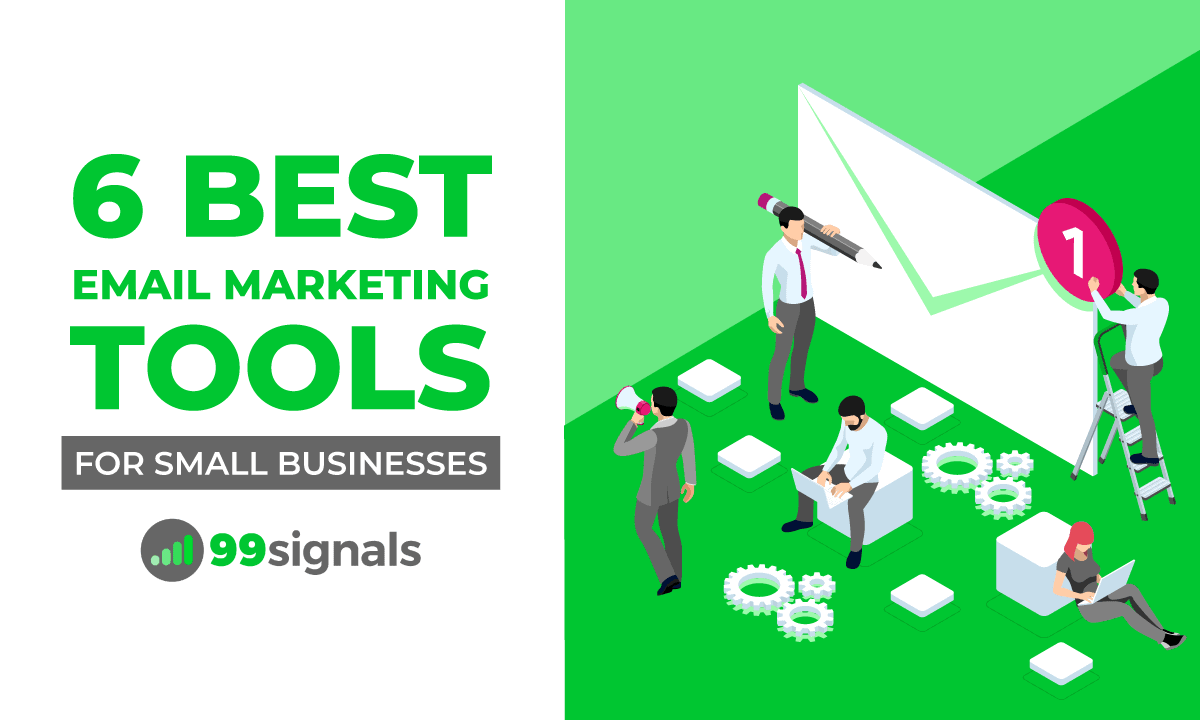
Small businesses can significantly benefit from email marketing.
Case in point: The ROI of email marketing is $44 for every $1 spent, according to DMA.
With numbers like that, it’s a no-brainer to put it front and center of your online marketing strategy.
And building on that, the success of your strategy often rests on the quality of your chosen email marketing software.
In this article, we review the 6 best email marketing tools your business can invest in. By the end of it, you’ll be able to make an informed decision tailored to your specific requirements.
Let’s dive in.
Table of Contents
6 Best Email Marketing Services for Small Business Owners (Summary)
Here’s a summary of our top recommendations for email marketing platforms tailored to small businesses. For a detailed description of each of these platforms, refer to the next section.
With a keen understanding of the dynamics of small and growing businesses, Brevo’s email marketing services are crafted for simplicity, scalability, and value.
Marketing automation and email marketing software that's one of the most affordable email marketing services on the market, making it an excellent choice for small businesses.
Email marketing and automation platform specifically designed for eCommerce businesses. It focuses on omnichannel marketing, combining email, SMS, push notifications, and other channels seamlessly.
ConvertKit is a robust email marketing and automation platform primarily designed for content creators, bloggers, and online entrepreneurs.
With over two decades of experience in the competitive email marketing arena, Mailchimp is the world’s most widely used email marketing platform.
SendFox focuses on providing a simplified email marketing solution. It’s user-friendly interface is particularly useful for those who want a no-fuss approach.
Top 6 Email Marketing Tools for Small Businesses
1. Brevo (formerly SendinBlue)
Pricing: Starts at $25/mo for unlimited subscribers; sign up for Brevo’s free plan
Brevo (formerly SendinBlue) has been a pioneer in the email marketing software space for over a decade. Despite adding a repertoire of new services to their existing lineup, email marketing remains a prime focus for the company.
With a keen understanding of the dynamics of small and growing businesses, Brevo’s email marketing services are crafted for simplicity, scalability, and value.
From affordable pricing to feature-rich offerings and top-notch support, everything in Brevo is designed keeping small businesses and startups in mind.
Brevo’s free plan allows you to send 300 emails per day. It also gives you access to customizable email templates and SMS & WhatsApp campaigns.
When it comes to budget-friendly email marketing services that provide premium features, it’s tough to beat Brevo’s innovative campaign automation, intuitive design templates, and responsive performance metrics.
Brevo Pricing Plans
Unlike a majority of email marketing software, Brevo doesn’t offer list-based pricing. Instead, the plans are determined based on the number of emails you’d like to send each month.
- Free – $0/mo (300 emails/day, drag and drop editor)
- Starter – $25/mo (No daily sending limit, basic analytics)
- Business – $65/mo (Advanced analytics, marketing automation)
- Brevo Plus – Custom (Enterprise-grade security, advanced integrations)
Browse through Brevo’s pricing plans to see and compare all the features
Brevo Pros and Cons
Pros
- Brevo’s free plan is tailor-made for early-stage startups and small businesses aiming to kickstart their email marketing journey.
- Brevo’s pricing based on emails sent per month offers greater scalability and cost-effectiveness.
- Neatly designed user interface
- Beginner-friendly software
- Affordable, yet packed with premium features
- Customizable templates (included even in the free plan) give your email campaigns a polished look.
Cons
- You can only send 300 emails per day under the free plan.
- Some advanced features only in higher-tier plans.
2. Moosend
Pricing: Starts at $9/mo for 500 subscribers; sign up for a 30-day free trial
Special Offer: Get 25% off your first three months when you switch from Mailchimp to Moosend; Use promo code MC25. Try it now!
Moosend is a marketing automation and email marketing software that lets you design, execute, and track personalized email campaigns, set up automated workflows based on user behavior, and gain insights through detailed analytics, all within a user-friendly interface.
With fully customizable templates and easy-to-use drag and drop editor, Moosend takes the hassle out of crafting compelling email campaigns. It’s also one of the most affordable email marketing services on the market, making it an excellent choice for small businesses.
Moosend’s email marketing packages start at a modest $9/month – you can sign up for a free 30-day trial to test out all the features.
One of Moosend’s standout features is the capability to set up automated workflows. You can design sequences based on specific triggers or user behaviors, helping in more personalized and timely engagement.
Moosend also boasts a 98% sender reputation, so the chances of your campaigns landing in spam folders are pretty slim.
Moosend Pricing Plans
Moosend follows a simple list-based pricing structure with just two tiers: Pro and Enterprise. You can sign up for a 30-day free trial of the Pro plan to get access to all the premium features.
- Free Trial – 30 days (No credit card required – sign up here)
- Pro – $9/mo (500 subscribers, unlimited emails, automation workflows, landing pages & forms)
- Enterprise – Custom
* The pricing will vary based on the number of subscribers or contacts in your email list.
You can save $24/year (on the Pro plan) by opting for annual billing.
Sign up for a 30-day free trial of Moosend Pro
Moosend Pros and Cons
Pros
- Moosend offers a user-friendly interface, making it accessible for both beginners and experienced users.
- Customizable templates and a drag-and-drop editor for easy email creation.
- Moosend excels in marketing automation, allowing for complex workflows based on user behavior.
- Competitive pricing makes it an excellent option for small businesses.
- Moosend’s high sender reputation contributes to good email deliverability.
Cons
- Moosend’s integration options with third-party apps are not as extensive as some of the other email marketing platforms.
- Some users may experience a learning curve when setting up complex automation workflows.
Try Moosend for free for 30 days
3. Omnisend
Pricing: Starts at $16/mo for 500 subscribers; sign up for Omnisend’s free plan
Omnisend is an email marketing and automation platform specifically designed for eCommerce businesses. It focuses on omnichannel marketing, enabling users to combine email, SMS, push notifications, and other channels seamlessly in their marketing campaigns.
With Omnisend, small businesses can provide a uniform experience across various touchpoints, from emails to social media and in-person interactions.
From an email marketing standpoint, Omnisend offers advanced automation workflows that can be triggered by specific customer behaviors, such as cart abandonment, purchase completion, or browsing habits. In addition, the platform provides deep segmentation options, allowing you to target messages based on customer behavior, shopping history, and other criteria.
When it comes to integrations, Omnisend seamlessly connects with leading eCommerce platforms such as Shopify, WooCommerce, Bigcommerce, among others.
If you’re running an online store, think of Omnisend as your Swiss army knife for all things marketing.
Omnisend Pricing Plans
With Omnisend’s free plan, you can send 500 emails, 50 SMS, and 60 web push notifications to up to 250 contacts every month. For advanced features and higher limits, you’ll need to upgrade to a higher-tiered plan.
Omnisend follows list-based pricing, meaning you pay based on the number of contacts in your email list.
- Free – $0/mo (250 contacts, 500 emails/mo, 50 SMS alerts, 60 web push notifications)
- Standard – $16/mo (500 contacts, 6000 emails/mo, 60 SMS alerts, unlimited web push notifications)
- Pro – $59/mo (2500 contacts, unlimited emails, 3933 SMS alerts, unlimited web push notifications)
* The pricing of Standard and Pro will vary based on the number of contacts you select at the top of the pricing table. Visit Omnisend’s pricing page to learn more.
Sign up for Omnisend’s free plan
Omnisend Pros and Cons
Pros
- Omnichannel capabilities: Seamlessly integrates email, SMS, push notifications, etc.
- eCommerce-centric: Tailored tools and features specifically for online stores.
- Advanced automation: Triggered workflows based on customer behaviors.
- Integrates well with major eCommerce platforms.
Cons
- Might be overkill for non-e-commerce businesses.
- Learning curve for those new to omnichannel marketing.
- Higher-tier features can be pricey for small businesses.
- Limited third-party app integrations outside of e-commerce.
4. ConvertKit
Pricing: Starts at $9/mo for 300 subscribers; sign up for ConvertKit’s free plan
ConvertKit is a robust email marketing and automation platform primarily designed for content creators, bloggers, and online entrepreneurs.
ConvertKit offers the same functionality and ease of use as other email marketing services on this list, with one key difference: it’s tailored more towards bloggers and content creators.
However, that doesn’t mean it’s not suitable for small businesses. ConvertKit offers remarkable automation capabilities, using a straightforward “if this/then that” logic, which can significantly enhance lead generation efforts for your business.
With ConvertKit’s Visual Automation Builder, you can visually map out and design email sequences, making automation workflows easy to understand and build.
ConvertKit also seamlessly integrates with a variety of third-party applications, from eCommerce platforms to webinar tools.
ConvertKit Pricing Plans
For the longest time, ConvertKit’s biggest drawback was not having a free plan. This made it less accessible to small businesses, despite its surging popularity in the email marketing field. ConvertKit addressed this issue in 2023 when it introduced a free plan, which supports up to 1000 subscribers.
Like most other email marketing software on this list, ConvertKit follows list-based pricing with three tiers:
- Free – $0/mo (1000 subscribers, basic features)
- Creator – Starts at $9/mo (300 subscribers; advanced features such as automated email sequences and third-party integrations)
- Creator Pro – Starts at $25/mo (300 subscribers; everything in Creator plan + premium features such as subscriber scoring and advanced reporting)
* The pricing of Creator and Creator Pro will vary depending on the number of subscribers in your email list.
Sign up for ConvertKit’s free plan
ConvertKit Pros and Cons
Pros
- User-friendly interface, especially for those new to email marketing.
- Visual automations allow for easy creation and viewing of email sequences.
- Integrates well with numerous third-party applications and tools.
Cons
- Expensive compared to other email marketing software on this list.
- Limited email templates
- The free plan is limited in scope; it doesn’t cover migration from another email marketing tool.
5. Mailchimp
Pricing: Starts at $9.21/mo for 500 subscribers; sign up for Mailchimp’s free plan
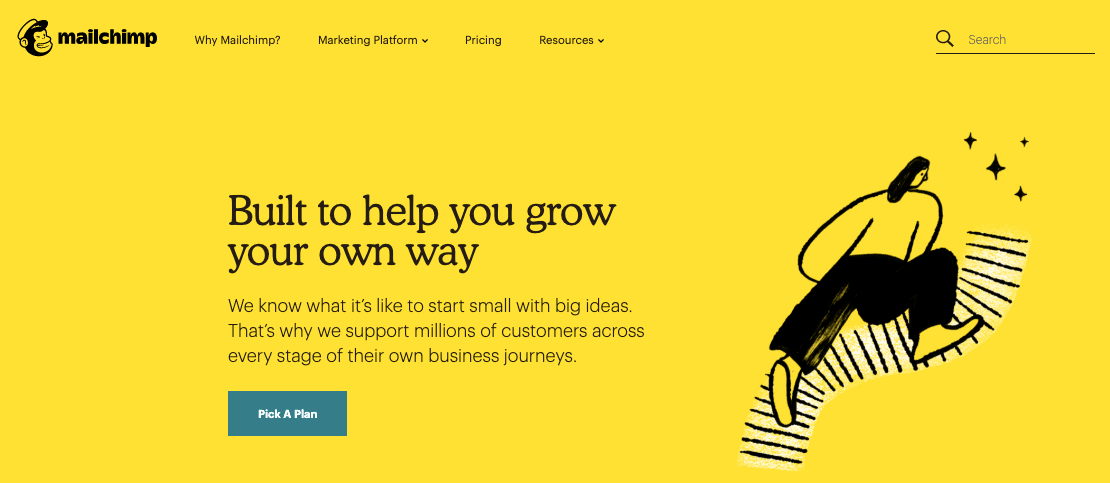
With over two decades of experience in the competitive email marketing arena, Mailchimp is the world’s most widely used email marketing platform.
Mailchimp set an industry benchmark when it unveiled its free plan, often referred to as the “Free Forever” plan, wherein you could send 12,000 emails to up to 2,000 subscribers every month.
But times have changed since its 2021 acquisition by Intuit, and there are now competitors on this list that appear to offer more value.
Mailchimp’s current free plan allows you to send emails to a limit of 500 subscribers, with a monthly cap of 1,000 emails. You get limited access to prebuilt templates, email analytics, and all the emails sent from your account will carry the Mailchimp branding.
When you upgrade to a higher-tiered plan, you get access to premium features such as email scheduling, automated customer journeys, A/B testing, and send time optimization.
Mailchimp Pricing Plans
Mailchimp offers list-based pricing with four tiers:
- Free – $0/mo (1000 emails/mo, 500 subscribers, basic features)
- Essentials – Starts at $9.21/mo (500 subscribers; 5000 emails/mo, 3 seats)
- Standard – Starts at $13.75/mo (500 subscribers; 6000 emails/mo, 5 seats)
- Premium – Starts at $275.06/mo (500 subscribers; 150,000 emails/mo, unlimited seats)
* The pricing for Essentials, Standard, and Premium will vary based on the number of subscribers.
Sign up for Mailchimp’s free plan
Mailchimp Pros & Cons
Pros
- Super fast setup and user-friendly interface
- As you move to the paid plans, you get access to advanced features like segmentation, A/B testing, and send time optimization.
- Offers a broad range of integrations with eCommerce platforms, CRM systems, and other third-party apps.
Cons
- The free plan is limited in scope; your emails will also have Mailchimp branding.
- As your subscriber list grows, the costs can escalate quickly, especially when you cross the threshold of the free plan.
- Mailchimp has strict terms of service, and there have been instances of accounts being suspended or terminated without much notice.
- No phone or chat support. Customer support is restricted to email
- Confusing pricing structure
Sign up for Mailchimp’s free plan
6. SendFox
Pricing: Lifetime plan starting at $49 for 5000 subscribers; get lifetime access to SendFox
SendFox is an email marketing software developed by AppSumo. It’s primarily designed for content creators, including bloggers, YouTubers, and podcasters. Given its cost-effective nature and simplicity, it’s rapidly becoming a preferred email marketing software for small businesses.
SendFox focuses on providing a simplified email marketing solution. It’s user-friendly interface is particularly useful for those who want a no-fuss approach.
The best feature in SendFox is its ability to automatically generate emails based on your content. For instance, if you’re a blogger, it can pull your latest blog posts and create newsletters.
To learn more about SendFox’s key features and functionalities, you can watch my in-depth review and tutorial below or check out the full SendFox review here.
SendFox Pricing Plans
Currently, SendFox has a free option and a lifetime deal available on AppSumo. With a one-time payment of $49, you can send unlimited emails to up to 5000 subscribers.
SendFox’s lifetime plan has five licence tiers, ranging from 5000 to 25000 subscribers.
- Free – $0/mo (1000 subscribers, throttled sends per month)
- Lifetime plan – $49 (5000 subscribers, unlimited sends, automations, smart pages, and forms)
To remove the SendFox branding from your emails and optimize sending deliverability, you’ll need to opt for the Empire add-on plan which is priced at $18/mo.
Grab the SendFox lifetime deal at AppSumo
SendFox Pros and Cons
Pros
- Budget-friendly: Priced lower than many competitors, making it an ideal choice for those on a budget.
- Ease of Use: The platform is intuitively designed, allowing newcomers to quickly get the hang of it.
- Content Integration: SendFox can automatically generate newsletters based on your recent content, such as blog posts and podcast episodes.
- Super fast setup, user-friendly interface, and easy to use.
Cons
- Limited Advanced Features: While SendFox covers the basics, it lacks some of the advanced features present in other email marketing platforms.
- Integration Limitations: It does not offer as many integrations as some of the more established platforms.
- Deliverability: Some users have complained about deliverability issues.
- SendFox Branding: The SendFox branding can only be removed with the Empire add-on.
- The simplicity of SendFox can be a double-edged sword. You may find the platform too basic, especially if you’re looking for in-depth customization of templates and designs.
Get lifetime access to SendFox for just $49
Final Thoughts on Email Marketing Software for Small Businesses
Having a reliable email marketing tool is essential for small businesses. Whether you lean towards the innovative features of Brevo and Omnisend, the tailored approach of SendFox for content creators, the classic robustness of Mailchimp and ConvertKit, or the efficiency of Moosend, each platform offers unique strengths tailored to diverse needs.
Ultimately, the right choice will depend on your business objectives, budget, and desired user experience. Whichever you choose, harnessing the power of email marketing will undoubtedly elevate your small business to new levels of success.
What are your thoughts on the email marketing tools featured here? Do you have a personal favorite? Let us know in the comments section below.
Editor’s Note: This article was first published on 3 October 2016 and has been updated regularly since then for relevance and comprehensiveness.
Related Articles

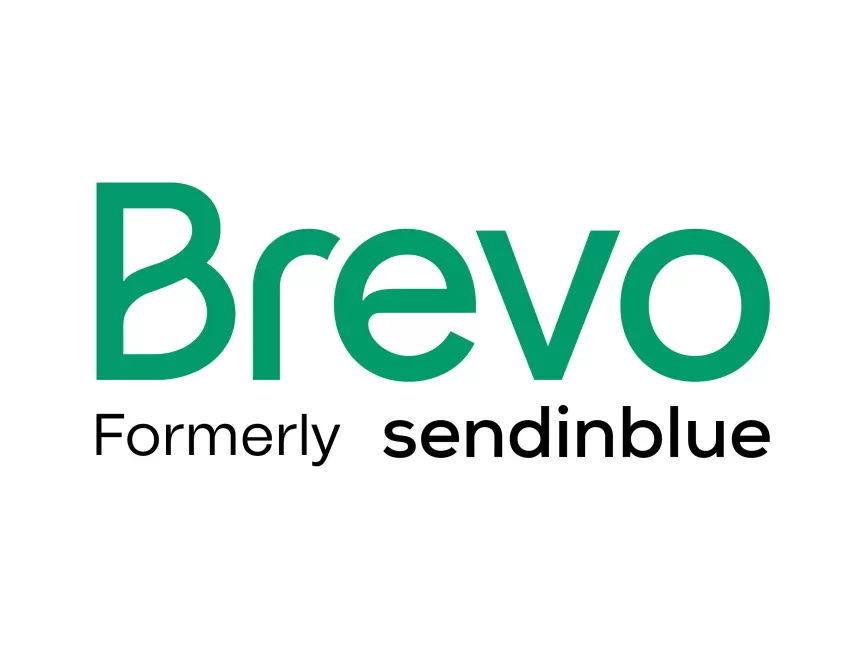
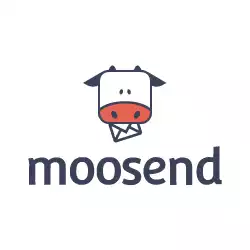
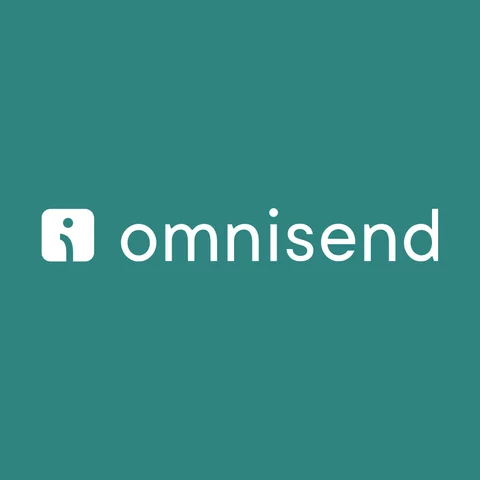
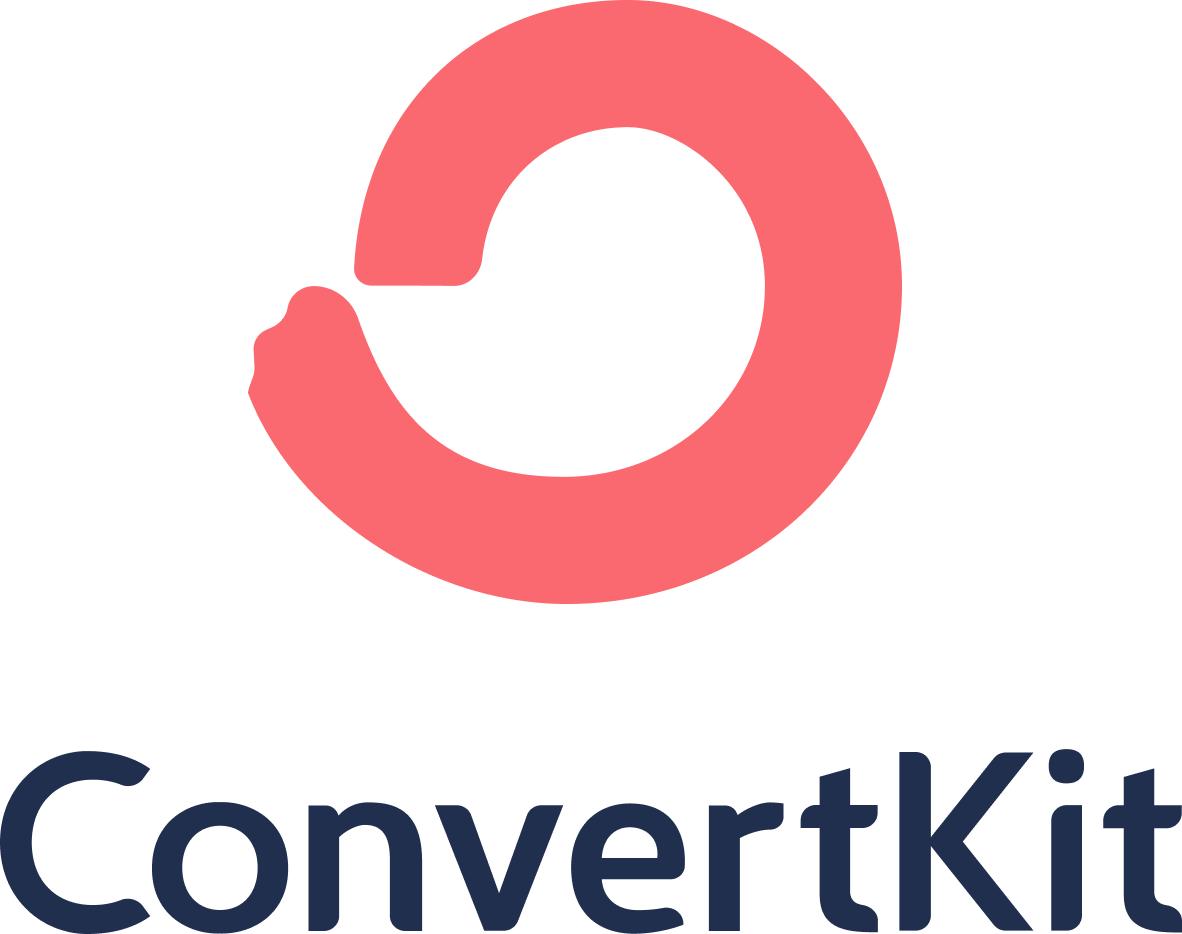
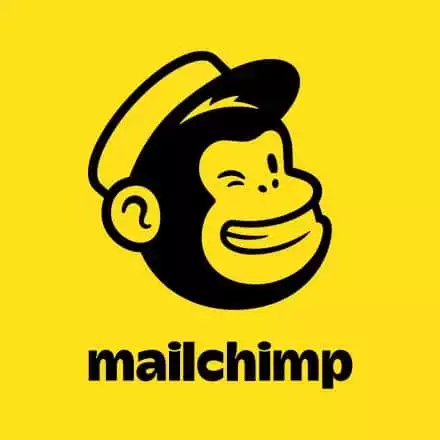
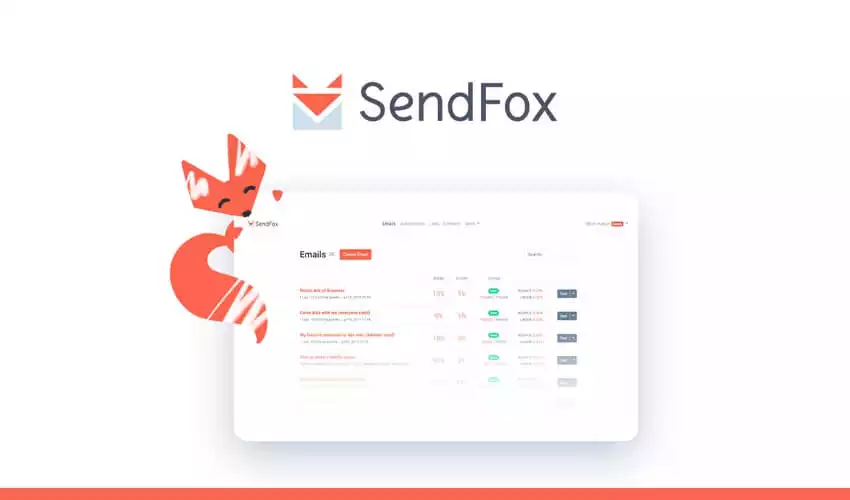
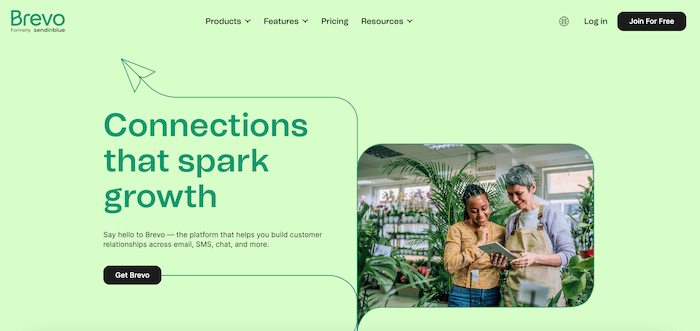
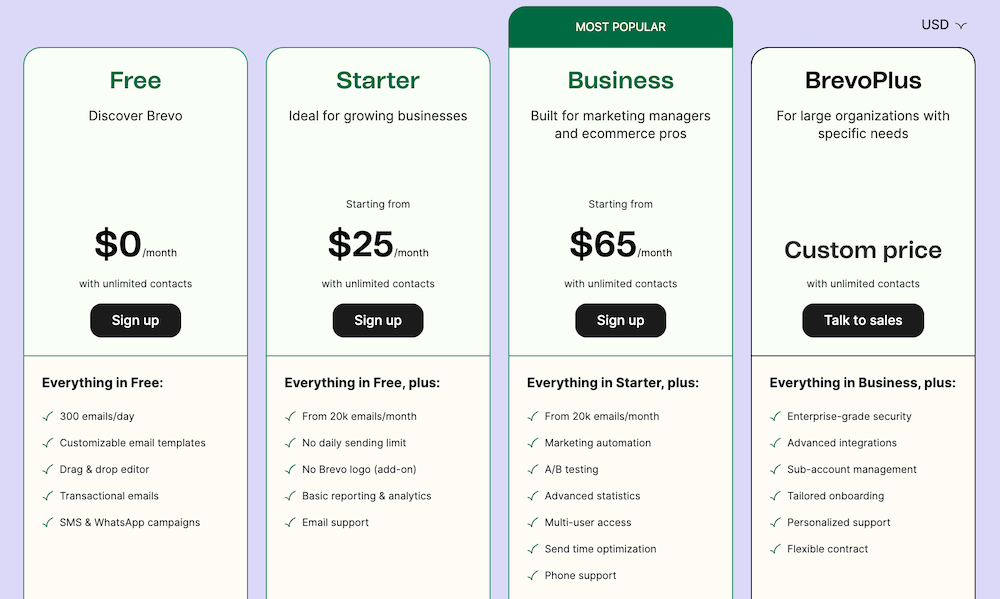
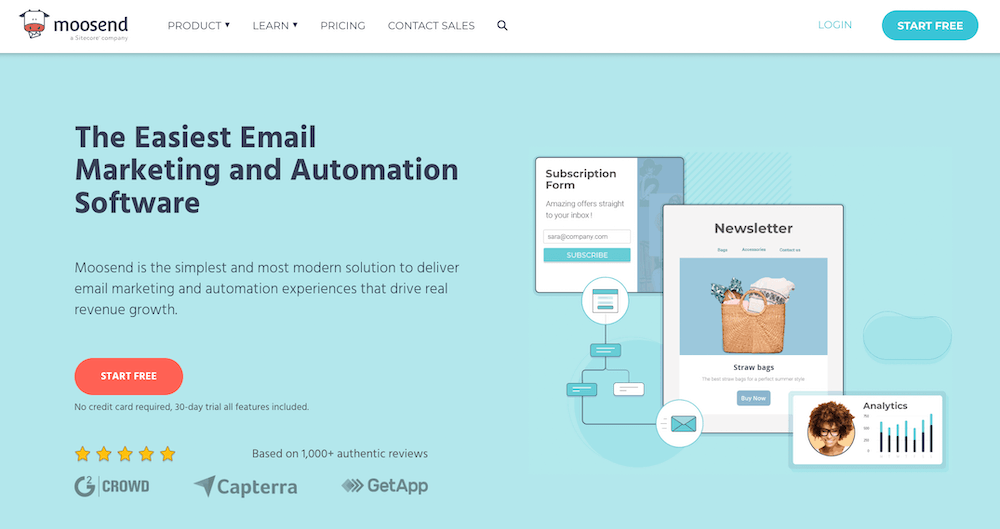
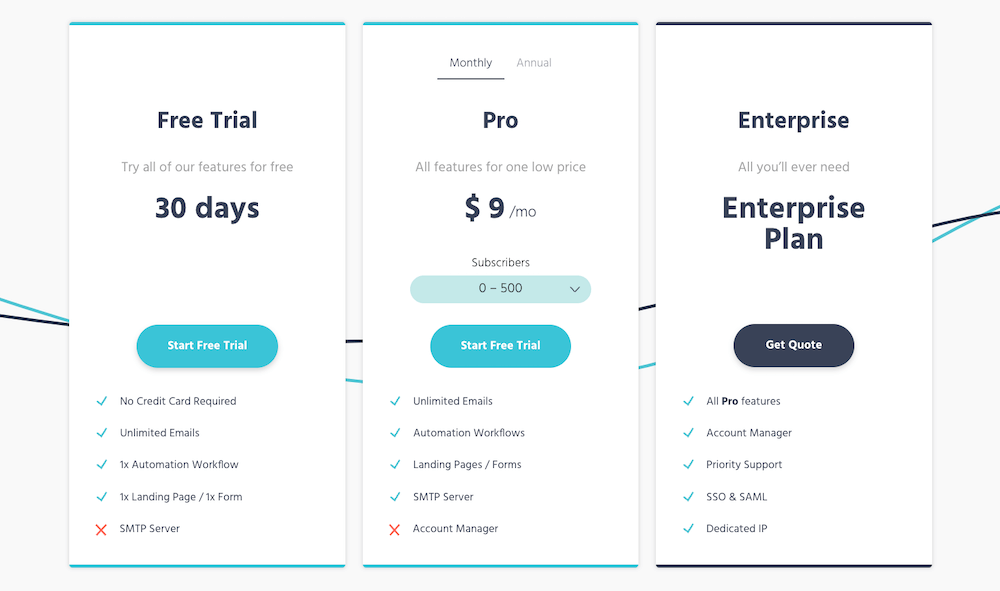
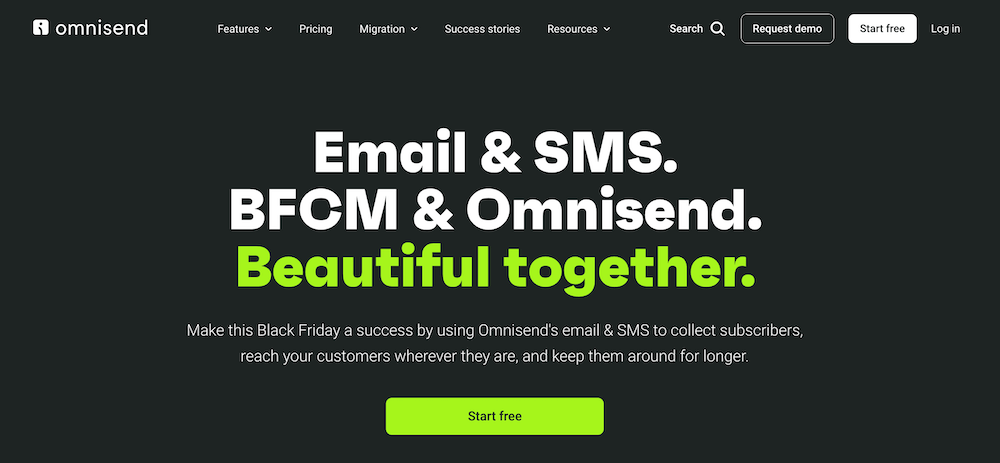
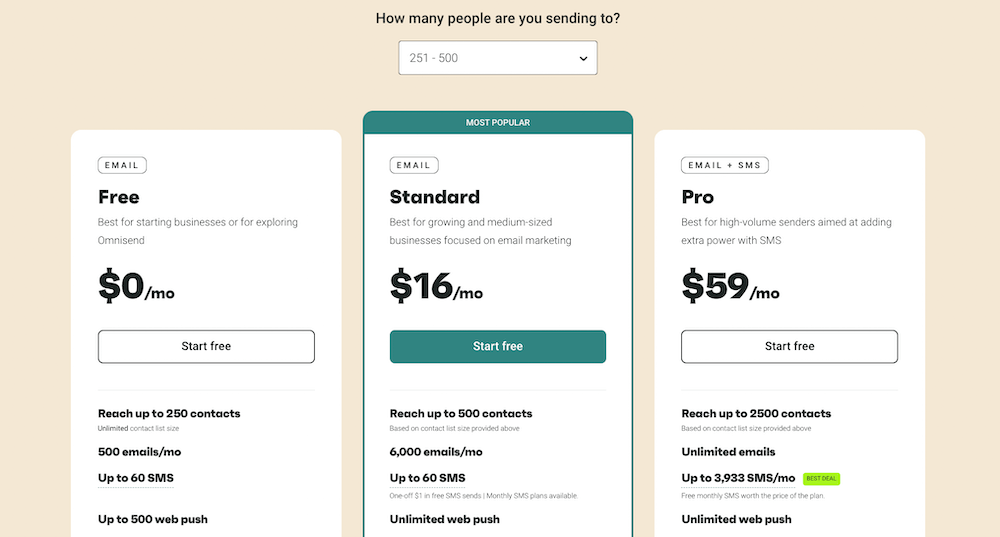
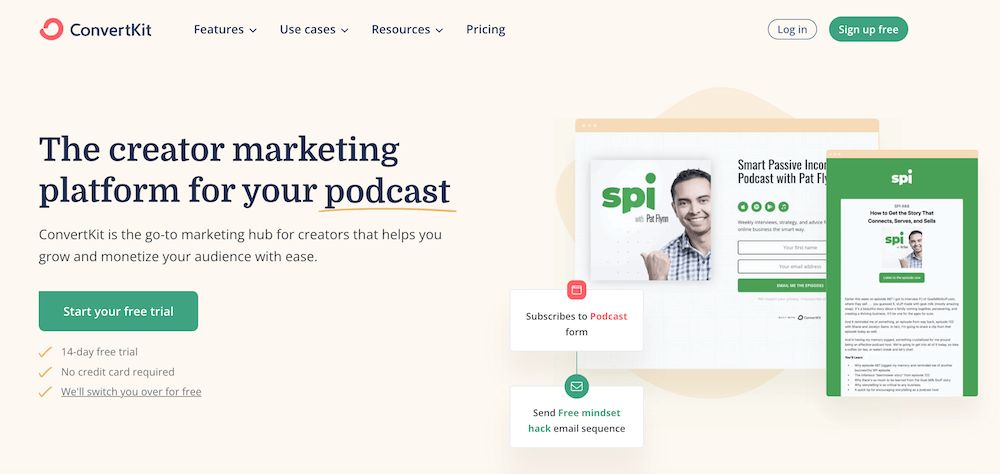
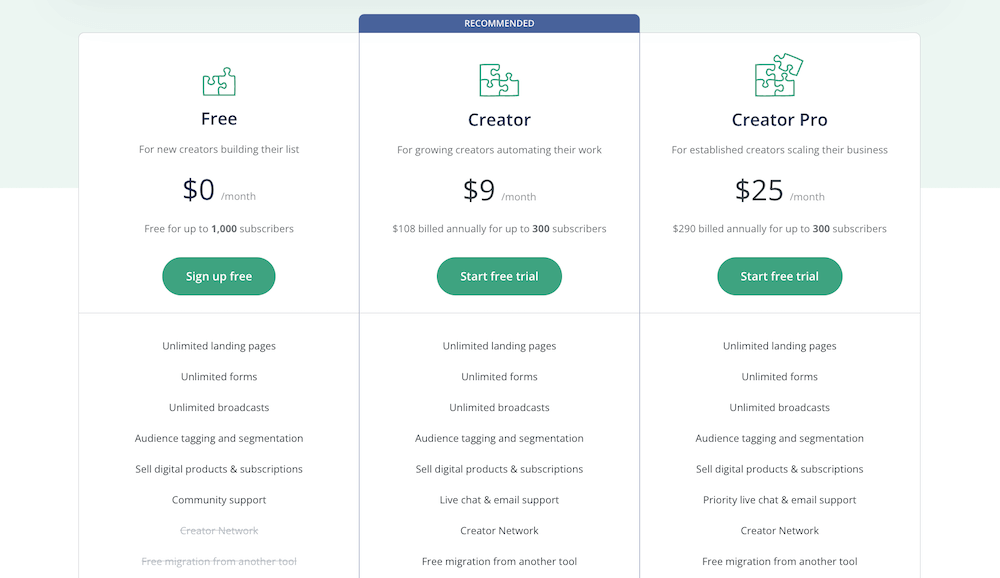
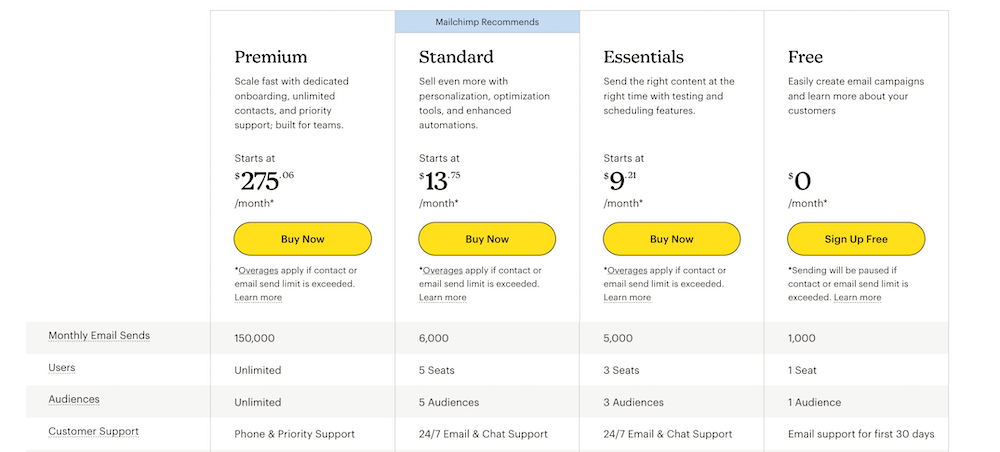
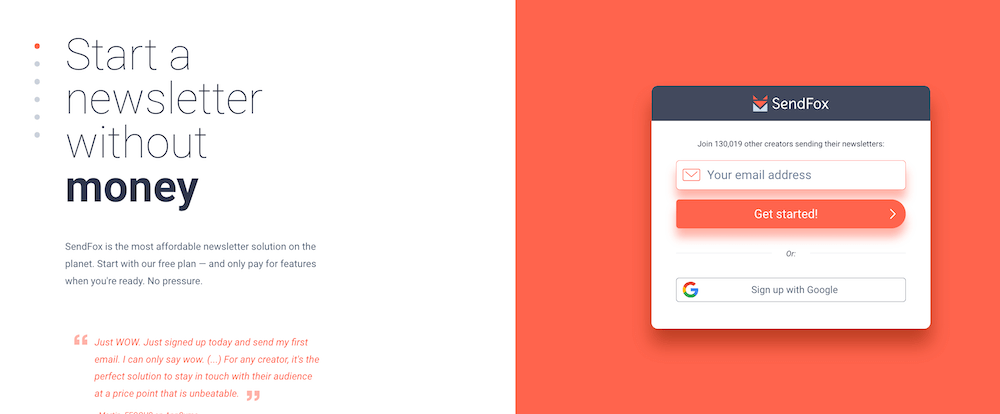
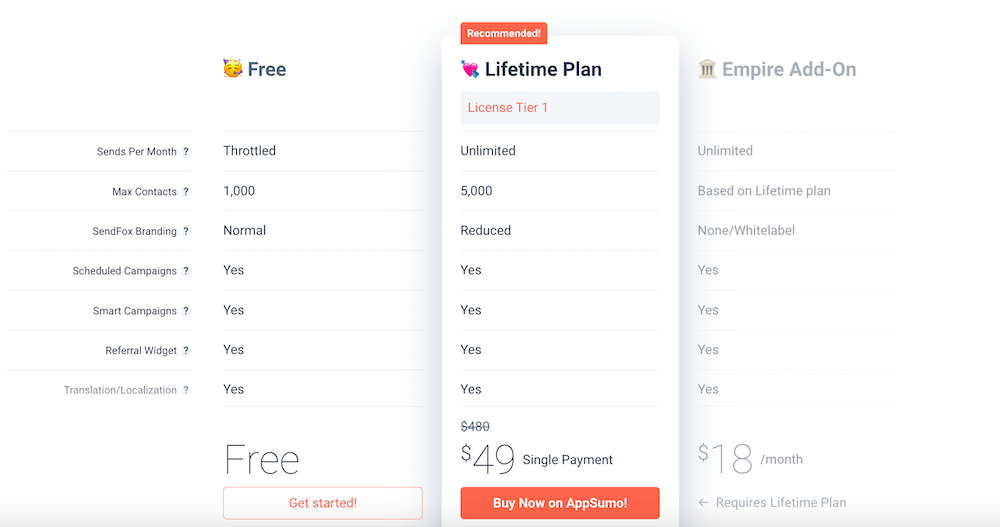
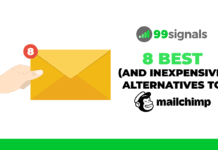
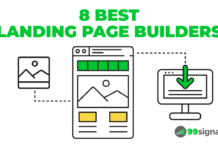


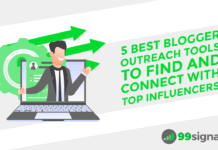
![SendFox Review: The Best Email Marketing Tool for Content Creators [Video + Article] SendFox Review](https://99signals.b-cdn.net/wp-content/uploads/2019/11/SendFox-Review-2019-218x150.png)
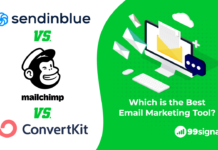
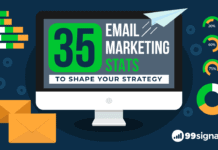
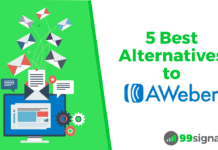
[…] Email marketing is of paramount importance to small businesses to attract and nurture leads for their business. According to HubSpot, email marketing has an ROI of 4300%. As such, marketers must prioritize email marketing and make it an integral part of their marketing strategy. Choosing the right email marketing software provider (ESP) can have a huge impact on the … […]
[…] landing pages designed using Instapage integrate smoothly with almost all the leading email marketing service providers (ESPs), making it super easy for you to start growing your email list at a rapid […]
Thank you for the list. We also use remail.io for email automation and happy with it. It provides great analysis, response tracking and great tips in blog.
These are some very helpful tools for small businesses. Thank you for sharing them. In addition, I would also like you to add MailEngine. It’s a newbie-friendly tool and affordable too.